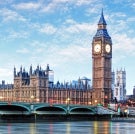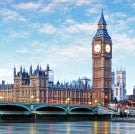Rachel Reeves is to lay bare the scale of Labour’s dire economic inheritance from the Conservatives on Monday, in a speech which could lay the ground for tax hikes and spending cuts in the chancellor’s first budget.
She is expected to tell parliament that Rishi Sunak’s party left a £20bn black hole in the public finances, including making significant funding commitments this year with no idea how they would be paid for.
The government said the assessment will show that “Britain is broke and broken” and will reveal “the mess that populist politics has made of the economy and public services”. It will set the stage for “difficult decisions” to be taken “to start to rebuild the country”.
But former chancellor Jeremy Hunt said the books have been “wide open”, accusing Labour of “peddling fiction which is widely rejected by independent commentators”.
He added: “Their motive is clear: having promised not to raise taxes 50 times before the election, they now need a pretext – but trying to scam the British people so soon after being elected is a high-risk strategy doomed to fail.”
It is widely expected that the dossier, which Ms Reeves commissioned in one of her first acts as chancellor, is a bid to give cover for Labour to cut spending or unveil tax increases. The party ruled out increases in VAT, national insurance and income tax during the election campaign but other measures that could be considered are changes to capital gains and inheritance tax.
Ms Reeves is following in the footsteps of former chancellor George Osborne, who used the Tories’ inheritance from Labour in 2010 to paint the party as having bankrupted the country.
In a major speech, she will commission a financial forecast from the Office for Budget Responsibility (OBR) and confirm the date of the autumn Budget, which will be the first ever delivered by a woman.
And while setting out the scale of the challenge to the public purse, she will promise to “fix the foundations and make every part of the country better off”.
Institute for Fiscal Studies (IFS) economist Ben Zaranko said the scale of the public finance challenge “was apparent pre-election to anyone who cared to look”.
“A reckoning with the fiscal reality was inevitable,” he added.
The IFS repeatedly warned during the general election campaign that Labour and the Conservatives were engaged in a “conspiracy of silence” about future spending plans, with an £18bn public spending shortfall based on existing forecasts.
But Mr Zaranko said Labour may have been caught off guard by higher than expected public sector pay recommendations and the amount of defence spending in support of Ukraine.
Max Mosley, senior economist at the National Institute of Economic and Social Research (NIESR), said Ms Reeves had inherited “an underinvested economy with underfunded public services with little to no room to borrow to fix these systemic issues”.
He said many would sympathise with the chancellor’s challenge but said the “doom loop” was self-imposed due to the chancellor’s own restrictive fiscal rules.
He called for Ms Reeves to loosen the fiscal rules to allow the government room to invest in growing Britain’s economy.
Mr Mosley told The Independent: “Whilst the OBR publishes the headline trajectory for public finances and throughout the election organisations like the NIESR offered repeated warnings about what they were set to inherit, it was always going to be the case that the true scale of the challenge would only really be known once they entered government.
“However, the country would benefit from the government spending less time looking back at who they think caused these issues and more time outlining how we can fix them going forward.”
Pat McFadden, Labour’s chancellor of the Duchy of Lancaster, said: “After 14 years of Conservative failure, the Labour Party is calling time on the sticking-plaster politics of populism.
“The electorate sent this changed Labour Party to government with a clear mandate to restore economic stability, grow the economy and build the homes we need.
“We will not shy away from being honest with the public about the reality of what we have inherited. We are calling time on the false promises that British people have had to put up with and we will do what it takes to fix Britain.”
The government has identified seven key areas in which it has inherited a worse situation than anticipated before the election. They include housing, water, health, migration, education, defence and transport.
On Monday, Ms Reeves will highlight the record-low number of homes given planning permission in the past 12 months, with just 236,000 approved. Labour said it has inherited “a planning system broken by short-term and self-interested decisions”. It pointed to average house prices 25 years ago being four times the average salary, with the figure more than eight times today.
On water, it said the Conservatives have left Britain “one of the most nature-depleted countries in the world”, with a third of the country’s wildlife species at risk of extinction and the countryside in decline.
The party also said it has inherited a broken NHS, setting out plans for “long-term, fundamental reform” of the service.
Current NHS waiting lists stand at 7.6 million and climbing, with one in four people waiting more than four hours in A&E.
The party also took charge of the migration system with small boat Channel crossings at a record high, saying Mr Sunak’s now-scrapped Rwanda deportation plan had failed as a deterrent.
Labour highlighted “alarmingly high” rates of severe and persistent absence in schools and also criticised the “hollowing out” of Britain’s armed forces under the Tories.
And on transport, the government said Mr Sunak and his predecessors’ failures to end industrial action with rail unions had cost the economy £20m a day.
Ms Reeves is reportedly set to delay some major capital projects on Monday in a bid to plug the holes in the country’s finances.
She could delay a string of key hospital and road schemes that she will argue are “unfunded with unfeasible timelines” to plug the shortfall, according to the Financial Times.
Road projects with cost estimates driven up by inflation and the Tories’ pledge to build or expand 40 hospitals could be postponed, the newspaper reported.
These could include the Lower Thames Crossing – a proposed road project that would connect the M25 in Essex with the M2 and A2 in Kent via a new tunnel under the Thames estuary. A decision on the planning application for the project was delayed because of the general election.
The chancellor is also expected to approve above-inflation pay rises for millions of public sector workers in response to the recommendations of independent pay review bodies.
Teachers and some 1.3 million NHS staff could be in line for a 5.5 per cent pay boost, which could cost about £3.5bn more than had been budgeted for.
Economists believe this could rise to around £10bn if other pay review bodies give similar advice on workforces such as police and prison officers and doctors and dentists.
Source: independent.co.uk



